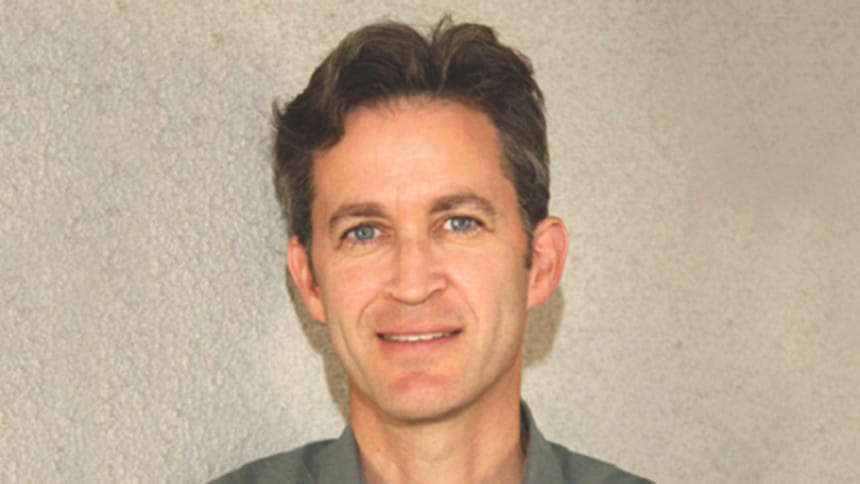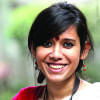“We need to separate speech that is offensive and insulting from speech that actually leads to imminent threats to people's lives and well-being”

What are your views on the current state of "freedom of expression" in Bangladesh?
At first I have to say I can't speak comprehensively about what is happening in Bangladesh. I think the one issue that is very obvious is the pressure on bloggers and the real insecurity that people who just want to write and express their opinion face in Bangladesh. As we know, this is a problem that has resulted in lives being taken brutally. That seems to be symptomatic of a much broader problem, which is lack of tolerance of different opinions and views, and insecurities about one's views, perhaps.
We have made a request for a country visit to Bangladesh, along with requests to a dozen other states. Visiting Bangladesh would enable us to look at a whole range of issues, such as the broadcast policy, internet regulation, religious freedom and blasphemy, and freedom of expression at large.
As you identified, there seems to be a real sense of fear among bloggers and writers in general, many of whom believe the state has let them down. Under the circumstances, what should be the role of the state?
I think there are at least two roles. One, the state has an obligation to protect the right to life for all of its citizens. As we can see, these are not just one-off killings, these are part of a broader trend, so the state has a real responsibility to provide protection to those who are being threatened in a systematic manner. What that means in terms of how that protection is provided is up to the state to determine. The second part entails engaging in public education and making clear statements, not just in terms of rejecting the killings, but in terms of rejecting all forms of intolerance of different ideas. The government doesn't need to be partisan to any one of those ideas, but it has to support everybody's right to express themselves. There needs to be a lot of work done in educating the public about basic rights.
Speaking more generally, would you say freedom of expression is an absolute right? What happens, for instance, when "hate speech" is propagated in the name of "free speech", and what can we do to ensure freedom of expression is not exploited by those in positions of power?
This is one of the hardest questions. Most of the time when we see hateful speech, it's in the service of some power or some position, whether it's maintaining power or trying to get power. So much of hate speech is about manipulating people's identity and views. I think we need to separate speech that is offensive and insulting from the kind of speech that actually leads to imminent threats to people's lives and well-being, whether in the form of discrimination or physical attacks. We need to be careful about restricting speech that is not at the level of inciting violence because once you start going down that path, you start restricting all kinds of speech, on the mere supposition that it could lead to something else. That's a real problem in the way we talk and think about hate speech. When there is state and/or powerful institutional support for hateful speech, civil society has a very important role to play, not just on the side of those who are being attacked, but also on the side of those who are carrying out the hate speech. That means that all actors need to talk and engage in dialogue, because hate speech snowballs into violence that harms everybody.
As technology has advanced, we have unfortunately also witnessed greater surveillance on people, often in the name of national security. What can the UN do, if anything, to deal with this rising concern?
I think you have identified a really important problem – well, two problems, really. One is the use of surveillance tools to undermine everybody's security and privacy.That's a real problem because, at the end of the day, if you think you are being watched, your willingness to express yourself is going to be limited on any number of issues. And there are tools for that (to counter surveillance tactics), such as encryption and anonymity, but states are trying to cut back and deprive people of these tools. I think it's essential for the UN to insist that these tools are essential for ensuring security and privacy globally.
The other issue is that states are increasingly using national security as an excuse to undermine freedom of expression, and that's an area where rapporteurs and UN more generally can ensure that when states are doing something in the name of national security, we don't simply say, 'oh, ok, that's a legitimate objective', but that we really push them, and ask: why is this really necessary to take this measure in order to advance your security, how is this proportionate given the threat you have identified? So really, we need to challenge states on their claims of national security. There was a time when states could say, national security, and no one would respond, but I think that time is behind us, and we should be really challenging them, and demand that they explain and justify.
Have you observed any significant trends across the South Asian and South-east Asian region in regards to freedom of expression?
First of all, civil society across the region is quite vibrant and dynamic. But once you start to criticise existing power structures or the government, one of the things we observe across the region – not in every state, but you do see it in a number of places – that people get targeted for dissent. Some examples are: the Sedition Act in Malaysia, which is clearly designed to limit dissent, both political and religious; in Thailand, with Lèse-majesté laws, there is basically no way to criticise the government right now. You see such clamping down and restriction of legitimate forms of dissent and expression across the region.

 For all latest news, follow The Daily Star's Google News channel.
For all latest news, follow The Daily Star's Google News channel. 



Comments